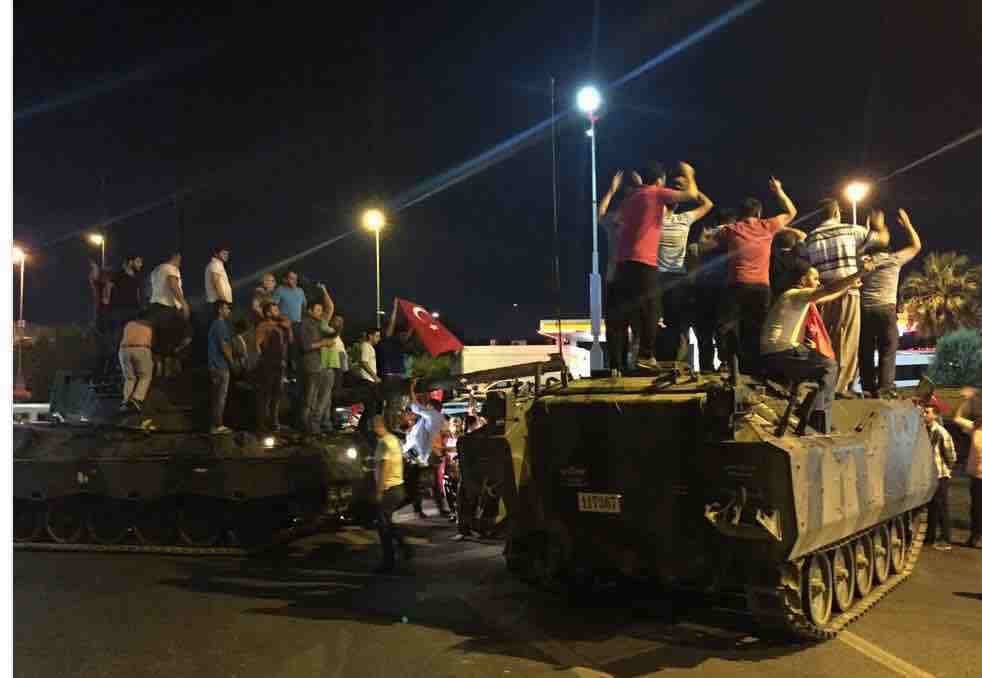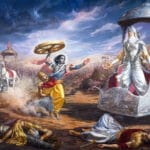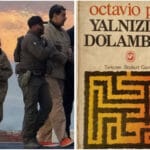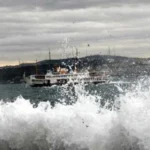“Whoever you are, strive to be that.”
(Pindoras)
In February 1923, during the Lausanne negotiations in the Grand National Assembly—particularly in the debates over the Mosul question—opposition deputy Operatör Emin (Erkul) Bey declared: “The day we give up Mosul, the border will be Erzurum.” After the Ankara Agreement of June 6, 1926, which closed the Mosul file, the new Republic’s entire effort—drawing also on the lessons of the Sheikh Said Rebellion—was to hold the border along the Hakkâri–Mardin line, without concerning itself with the lands below, and to secure the lands above so they would never again be divided, stabilizing it through security-driven policies of assimilation.
From the state’s perspective, the Kurdish question was the code name for the fear of “losing Erzurum after failing to take Mosul.” Throughout the history of the Republic, every stir in the name of Kurdishness reignited this fear. Foreign powers—depending on their relations with Turkey, whether Britain, Russia, France, the United States, Israel, or Iran—consistently exploited this anxiety in their dealings with Ankara. The result was a Kurdish sociology trampled upon by both the state and outside forces. Had Turkmen tribes lived in the region, we would no doubt have had a Turkmen problem instead! In the end, for both Kurds and Turks, it was a tragedy. As an Iranian poet put it:
“There was a war between your eyebrow and your eye,
And I was slain in between—what kind of affair was that?”
Now, here we are, at the very foot of Mosul, and as those who have been “killed in between,” all the conditions are ripe—both to halt the spilling of our blood without delay and to bring this tragedy to a permanent close.
Those who address the matter only through its outcomes—such as the PKK, separatist tendencies, and Kurdish nationalism—and who present as “solutions” nothing more than laying down arms (ending terrorism) and other measures to extinguish the fire of Kurdish nationalism, do nothing beyond easing the Old Republic’s anxieties. By now, these anxieties have become a Pavlovian experiment—ready to be reproduced tomorrow, in another context, with the same narrowness of mind.
The issue must be approached from a broader and more historical perspective, looking to causes rather than consequences.
At the political level, the first place to turn is the constricted geopolitical horizon most fixated on Mosul. The pseudo-imperialist gaze of a self-colonizing regime—severed from its own historical mission and striving for integration with the West—must be abandoned. The Kemalist perspective, calibrated toward regaining Mosul (in the manner of the 1920s “Al-Jazira Confederation” project) and seeking to extract too much from a defeat, leads only to a cold and uninviting geopolitics of self-interest whose end point can be nothing but war with Iran.
At the sociological level lies the conception of state, homeland, and nation built upon the notion of the “Turk”—adopted by the state as the code name for the dismemberment of the Ottoman Empire, first used in place of “Ottoman” and later ethnicized. As a result of this political deviation, the attempt to remake the state and society (!) by burdening the word “Turk” with a weight it could not bear has, under the guise of safeguarding existence and survival, undermined the process of becoming a nation. The “Turk” redefined and imposed by the Republic, when viewed from the West, signified not only separation from the Orthodox axis, but also from Arab, Albanian, Georgian, and Kurdish components. The futility of trying to employ it as a unifying concept has paralyzed natural Turkishness and its organizing will, creating new “others” outside itself and producing endless additional costs in the form of rivalry, conflict, and enforced accommodation. The official “Turk” concept—placed in dichotomies such as Turkish–Greek, Turkish–Iranian, Turkish–Armenian, Turkish–Arab, and Turkish–Kurdish—is, in fact, a sign of the captivity of state and society in the narrow pit of Kemalism.
Turkishness, Kurdishness, and indeed Arabness, Circassianness, Albanianness, Georgianness—and all other ethnicities recast in modern forms—can belong to everyone and be owned by everyone only when they are universalized, transforming into patterns of plurality rather than becoming effects of alienation. The categorical-rights discourse of what may be called liberal fascism, which accepts national identities fabricated in ways no less fascistic than fascism itself, has brought us to a point where every ethnic term—even when used with the best of intentions—serves, in practice, the work of othering. Perhaps the first step is to question the unnecessary meanings that have been loaded onto these concepts.
In this light, any present search for a solution must, above all, be anchored in a broad horizon rooted in the geopolitics of the Mesopotamia–Mediterranean Basin; in a deep foundation that includes the rehabilitation of at least the last three centuries of trauma; in a political resolve capable of redressing the consequences of our defeat in the First World War; and in a universalist perspective from which to build a new and shared future upon ancient values.
Only such a starting point can lift the Kurdish question out of the tautological cycle in which it has been trapped—one woven from the manipulation by outside powers of its connections to the nation-state, nationalism, Alevism, Armenian identity, Kemalism, and republican anxieties—and turn it into a lever to bring the new onto the stage.
The redefinition of country, homeland, state, nation, religion, morality, economy, culture, and politics will unfold through rejecting the hegemony of the West’s global official ideology and charting a more indigenous path—one in which ancient values and modernity are recombined. The rehabilitation of the social genetics damaged by the traumas of the past century will be possible only through the liquidation of the Old and the opening of discussion on the New; without such an atmosphere, Turkey will never produce a lasting solution to any of its problems.
In Greek mythology, the legendary giant Procrustes would stretch his shorter guests to make them fit the bed he had prepared, or cut off the feet—or the head—of those who were taller. The “Procrustean bed” imposed upon our nation by the victors of the First World War has shorn and deformed our people’s head, hands, feet, and stature. What needs to be done now is not to force Turks, Turkish nationalists, the PKK, Kurdish nationalists, and Kurds to conform to the present bed, but to change the bed itself—or, more essentially, to change the mindset that arrogates to itself the right to lord over others.
This transformation can begin by normalizing all the concepts that have been manufactured and sanctified for this purpose. As Turkishness, Kurdishness, Arabness, Alevism, leftism, and Armenian identity are normalized, it will become easier to drain away the century-old poison injected into all of us.
A Muslim mind does not worship concepts—fetishes or idols. The unification of the state, the homeland, and the nation is not to be achieved by monolithic and homogenizing schemes of social engineering, but through the awareness embedded in our ancient codes: that we are the equal children of Adam, the common nation of Abraham, the ummah of Muhammad, and the diverse inhabitants of these lands.
With this awareness, a society in which everyone also knows Kurdish, Albanian, Arabic, Bosnian, and so on—and a state able to address its citizens in several languages at once—will strip these ethnic identities of their capacity to alienate or be alienated, transforming them instead into multiple components of shared belonging.
The question of existence and survival will be resolved by entrusting our existence to the sanctity of becoming Adam, and our survival to the just and freedom-loving security of unity in diversity. Without such conviction, no endeavor will bear fruit; rather, it will open new pages upon which the seeds of fresh discord are sown.
The solution to the Kurdish question means restoring, once again and for all of us, that which already belongs to all of us. This is possible only by making the consciousness of the benevolent state (kerim devlet) the sole red line of the state. The benevolent state is a mansion with a hundred rooms, each inhabited by a different component of the nation. Both the mansion as a whole and each of its rooms belong to everyone, yet each room also belongs to the private and intimate world of its own inhabitant.
After Lausanne, the Republic chose to close all these rooms, admitting only those it defined into the entrance hall. The other room-owners either built their own shanties, or demanded from the new proprietors their own rooms—or, if that proved impossible, at least an honorable and equal corner in the narrow entrance hall. The Republic saw these demands either as a risk of losing even the rooms it still possessed, or as a threat that the claimants might disturb the privileged, “authentic” citizens already inside.
A state that shuts this mansion to those unwilling to assume the identity it prescribes must now understand that it cannot be a legitimate power belonging to all. On the occasion of resolving the Kurdish question, the state must return to its original identity and unconditionally restore the common home (ortak ev) and all its rooms to their rightful owners. In a process of handover freed from unnecessary fears and from risks that, in today’s conditions, have lost all meaning—by trusting in its people and its nation, and by truly showing that trust—no one will take the house and run away, nor rent out their room to another.
To this end, the state must look upon its problems not through the outdated lenses of 20th-century Kurdish or Turkish, secularist or Islamist, Kemalist or liberal perspectives, nor through the false anxieties of republicanism, but with the consciousness of Adam’s trust—with the gaze of a believer. This gaze must be shared by every segment of society. The goodwill and concern for justice inherent in a believer’s gaze are stronger than all the powers of satanic discord.
For the peace of our common home, it is enough to embrace this simple human morality and the reflexes of the benevolent state, rather than convoluted or ostentatious formulas. The benevolent state is also the roof under which a deepened, genuine democracy can take shelter.
Only with this awareness will we be able to replace the language of “taking” or “losing” Mosul, the Kurds, Erzurum, or anything else, with the realization that, under all circumstances, we already are the very essence of that place or thing itself. The mind of a state unburdened by borders, prisons, taboos, or idols will then, at last, begin to function properly. And since such a state will already be the state of the Kurds as well, we will no longer speak of a Kurdish or Turkish question; instead—together, and without even being conscious of our ethnicities—as neither gods of this geography into which we were born without choosing, nor of this transient world, but as its ordinary guests and trustees, we will begin to speak of older, more universal, and more genuine questions.
The only thing we may take pride in is not the identities we did not choose, but the morality of becoming Adam.
However deep and incurable they may seem, the compassion born of the effort to become Adam will be enough to heal the wounds we carry from the past.









